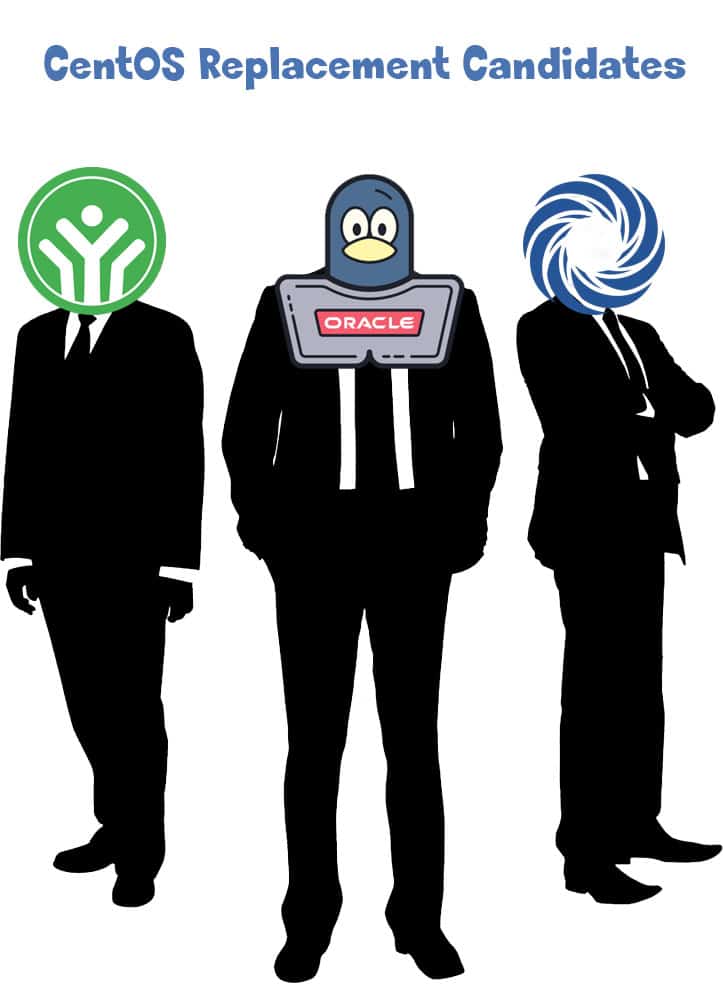CentOS Replacement Candidates
CentOS was most popular operating system for cloud but Red Hat acting same as COVID-19 and change the world forever. CentOS was a real Community Enterprise Operating System but till December 2020.
CentOS Project shifts focus to CentOS Stream
The future of the CentOS Project is CentOS Stream, and over the next year we’ll be shifting focus from CentOS Linux, the rebuild of Red Hat Enterprise Linux (RHEL), to CentOS Stream, which tracks just ahead of a current RHEL release. CentOS Linux 8, as a rebuild of RHEL 8, will end at the end of 2021. CentOS Stream continues after that date, serving as the upstream (development) branch of Red Hat Enterprise Linux.
Meanwhile, we understand many of you are deeply invested in CentOS Linux 7, and we’ll continue to produce that version through the remainder of the RHEL 7 life cycle.
CentOS Stream will also be the centerpiece of a major shift in collaboration among the CentOS Special Interest Groups (SIGs). This ensures SIGs are developing and testing against what becomes the next version of RHEL. This also provides SIGs a clear single goal, rather than having to build and test for two releases. It gives the CentOS contributor community a great deal of influence in the future of RHEL. And it removes confusion around what “CentOS” means in the Linux distribution ecosystem.
When CentOS Linux 8 (the rebuild of RHEL8) ends, your best option will be to migrate to CentOS Stream 8, which is a small delta from CentOS Linux 8, and has regular updates like traditional CentOS Linux releases. If you are using CentOS Linux 8 in a production environment, and are concerned that CentOS Stream will not meet your needs, we encourage you to contact Red Hat about options.
We have an FAQ to help with your information and planning needs, as you figure out how this shift of project focus might affect you.
https://blog.centos.org/2020/12/future-is-centos-stream/
Best CentOS Alternatives
If this type of development was enough, Fedora was the most popular Linux distribution. But why we chose CentOS? CentOS has stability like RHEL because it’s made from RHEL source codes. So let’s find the most stable Linux distributions for CentOS replacement.
Oracle Linux
Oracle Linux is one of distribution that made from RHEL. So the son has the characteristics of his father and has lot of other features as well. Oracle Linux has to kernels:
- Red Hat Compatible Kernel (RHCK) – identical to the kernel shipped in RHEL
- Unbreakable Enterprise Kernel (UEK) – based on newer mainline Linux kernel versions
Default kernel is Unbreakable Enterprise Kernel and you must check your hardware compatibility with this kernel too. Because Oracle Linux drivers ships with UEK.
CloudLinux
CloudLinux is based CentOS (RHEL) and uses OpenVZ kernel.
As we already maintain CloudLinux OS, we plan to release a free, open-sourced, community-driven, 1:1 binary compatible fork of RHEL® 8 (and future releases) in the Q1 of 2021. We will create a separate, totally free OS that is fully binary compatible with RHEL® 8 (and future versions). We will sponsor the development & maintenance of such OS. We will work on establishing a community around the OS, with the governing board from members of the community.
CloudLinux Blog
Red Hat Enterprise Linux
Another option is it self, Red Hat Enterprise Linux. You can register Red Hat Developer Program and access to download Red Hat Enterprise Linux for free. But there is no available support or update.
FAQs for no-cost Red Hat Enterprise Linux
Springdale Linux
Springdale Linux (formerly PUIAS Linux) is a complete operating system for desktops and servers, built by compiling the source packages for Red Hat Enterprise Linux. Besides these upstream packages, the project also provides several other repositories: “Addons” which contains additional packages not included in a stock Red Hat distribution, “Computational” which carries software specific to scientific computing, and “Unsupported” which holds various experimental packages. The distribution is maintained by the Institute for Advanced Study and Princeton University in the USA.
Scientific Linux
Scientific Linux is a recompiled Red Hat Enterprise Linux, co-developed by Fermi National Accelerator Laboratory and the European Organization for Nuclear Research (CERN). Although it aims to be fully compatible with Red Hat Enterprise Linux, it also provides additional packages not found in the upstream product; the most notable among these are various file systems, including Cluster Suite and Global File System (GFS), FUSE, OpenAFS, Squashfs and Unionfs, wireless networking support with Intel wireless firmware, MadWiFi and NDISwrapper, Sun Java and Java Development Kit (JDK), the lightweight IceWM window manager, R – a language and environment for statistical computing, and the Alpine email client.
ClearOS
ClearOS is a small business server operating system with server, networking, and gateway functions. It is designed primarily for homes, small, medium, and distributed environments. It is managed from a web based user interface, but can also be completely managed and tuned from the command line. ClearOS is available in a free Community Edition, which includes available open source updates and patches from its upstream sources. ClearOS is also offered in a Home and Business Edition which receives additional testing of updates and only uses tested code for updates. Professional tech-support is also available. Currently ClearOS offers around 100+ different features which can be installed through the onboard ClearOS Marketplace.
Rocky Linux Project
Rocky Linux is a community enterprise operating system designed to be 100% bug-for-bug compatible with America’s top enterprise Linux distribution now that its downstream partner has shifted direction. It is under intensive development by the community. Rocky Linux is led by Gregory Kurtzer, founder of the CentOS project. There is no ETA for a release.











